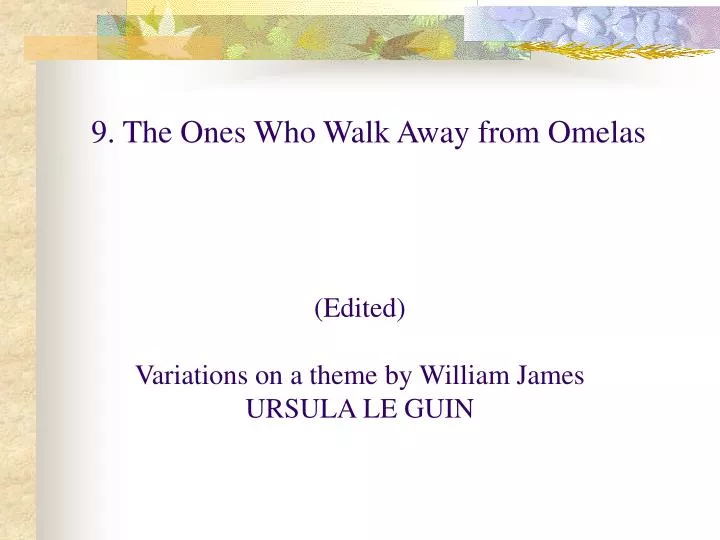

It was Le Guin’s contemporary Gene Wolfe, another writer acclaimed as a great stylist who, like Le Guin, wrote both science fiction and fantasy, who observed, ‘Almost any interesting work of art comes close to saying the opposite of what it really says.’Īnd whilst Le Guin stated that the passage from William James which inspired ‘Omelas’ described ‘the dilemma of the American conscience’, the remarkable thing about her story is that we could almost read it as an allegory not for capitalism but Communism: the lack of advertisements and other trappings of a consumerist society, the underclass (represented by the child) who is kept in perpetual misery, the ‘utopia’ in which everyone else is equally ‘happy’ but at a great cost. This seems like an odd detail to mention if Le Guin intended the story to be read as an ‘allegory for capitalism’. Although it’s tempting to see the story as a straight allegory, it is worth bearing in mind that Le Guin’s narrator makes a point of telling us that consumerist culture is unknown to the people of Omelas: they have no stock exchange and no advertisements around the city.

Is Le Guin’s story an allegory for this kind of society, the one which Americans, and other Westerners, live in today? To some extent, then, America’s prosperity depends on the poverty and misery of millions of other people, including many people (immigrants and low-paid workers on the breadline) living in the US itself. What of the people who endure slave labour (many of them, lest we forget, children the same age as the child in Le Guin’s story) so that smartphones and other products can be sold so cheaply? If everyone was rich and successful, the whole economic model would fail.įor example, cheap labour (especially overseas) enables large global companies to sell their products to millions of Westerners at affordable prices. Le Guin’s story is sometimes interpreted as an allegory for modern capitalism, which relies upon an ‘underclass’ remaining in poverty so that the affluent members of society can be rich and prosperous.


 0 kommentar(er)
0 kommentar(er)
